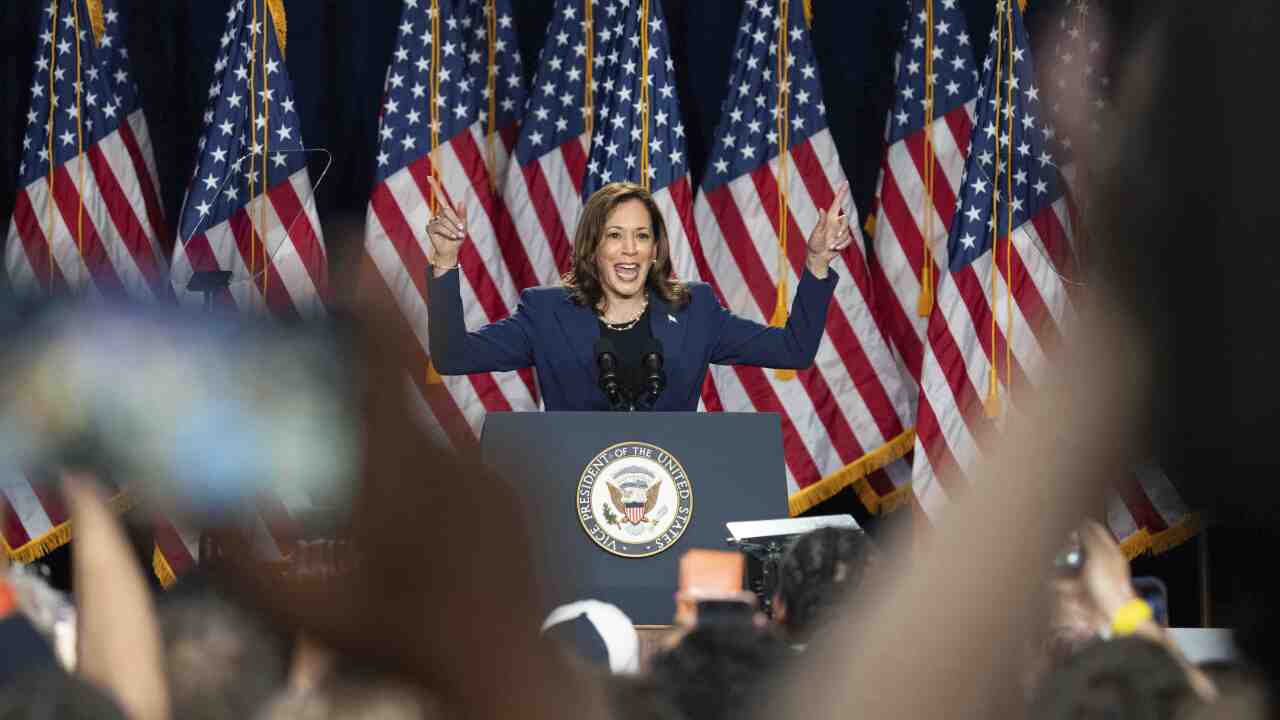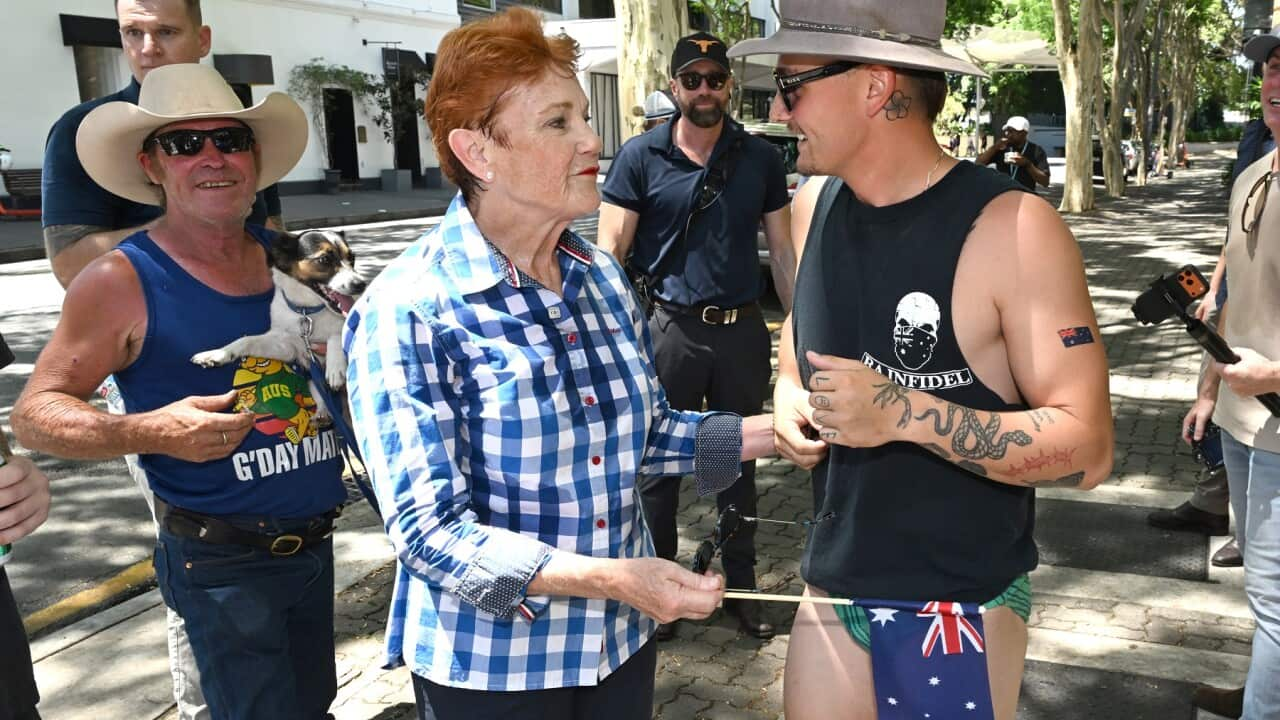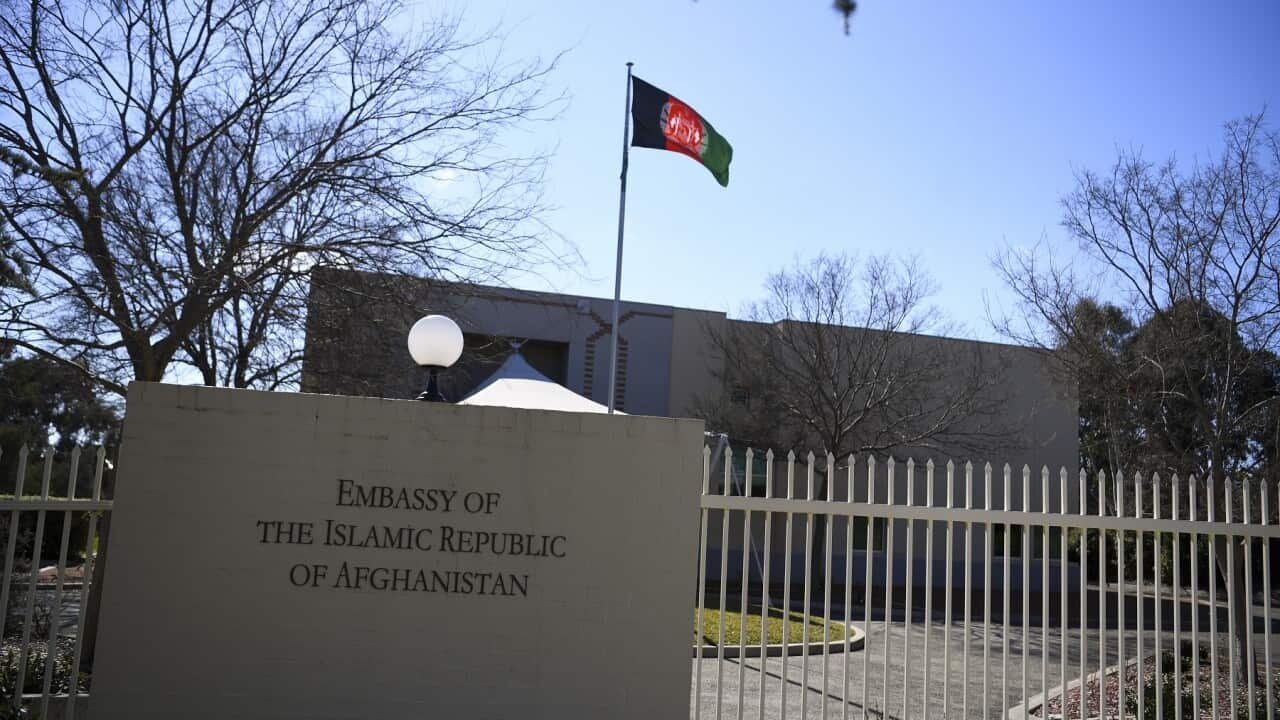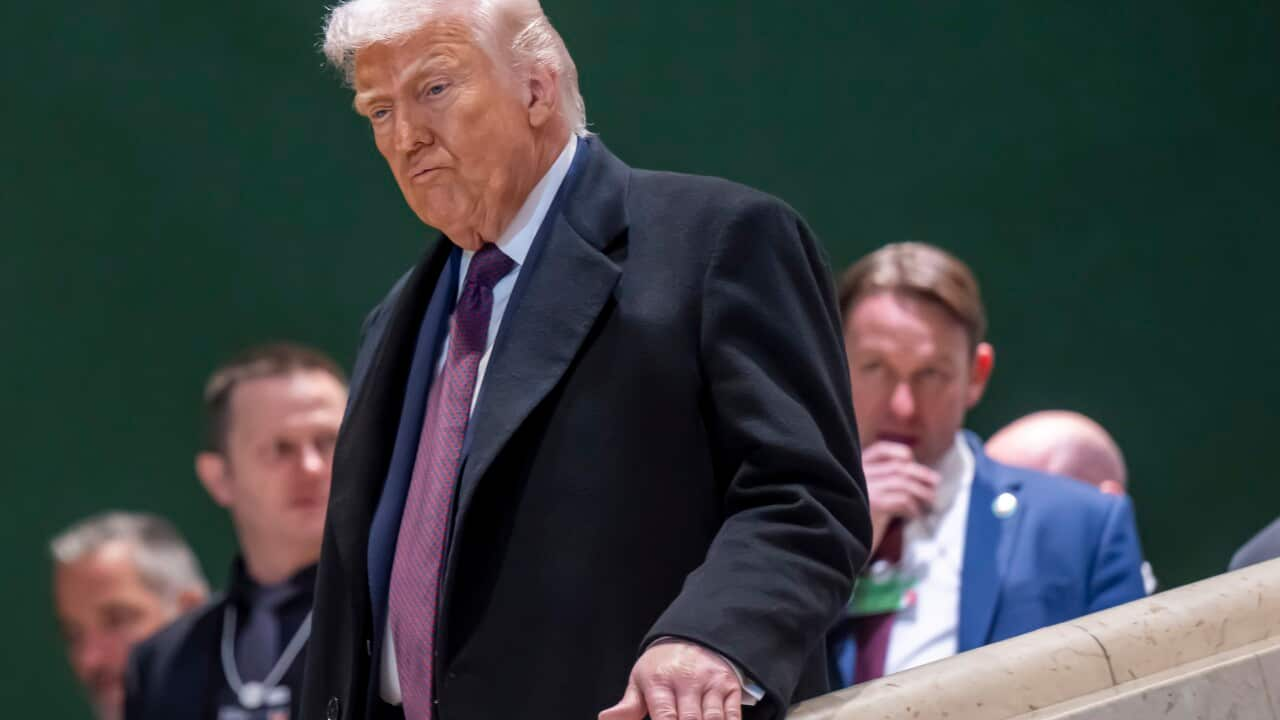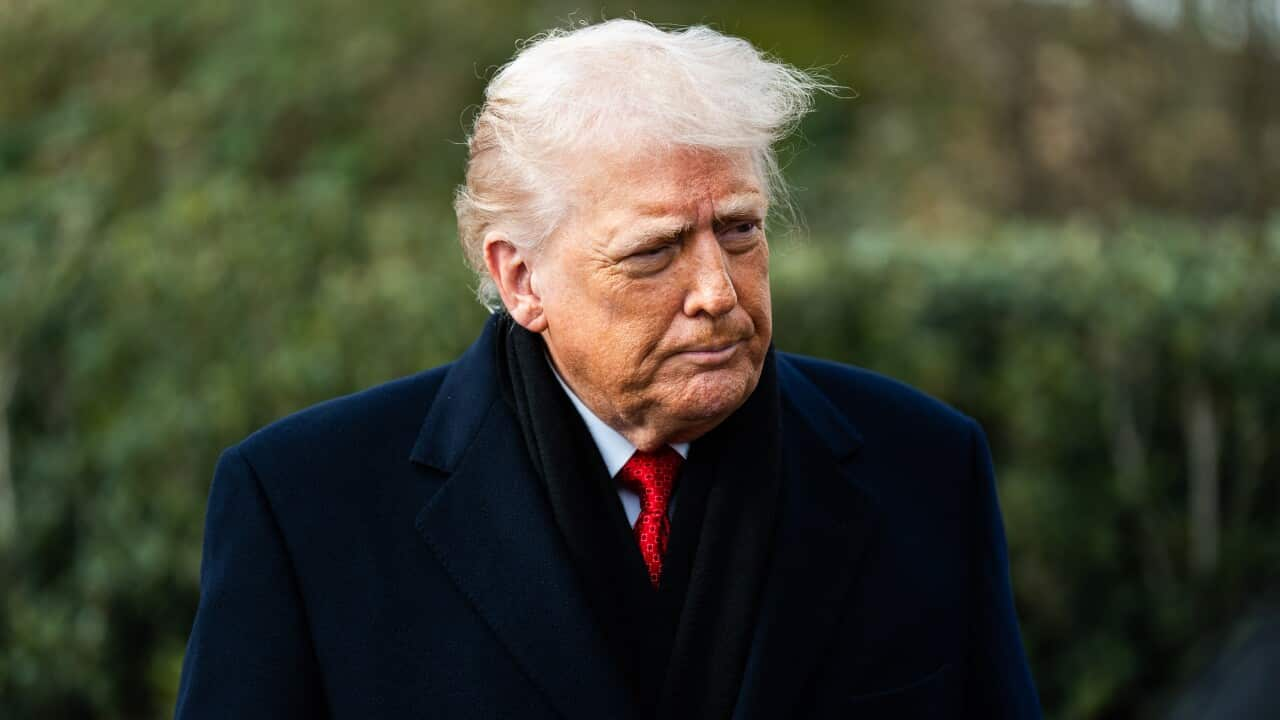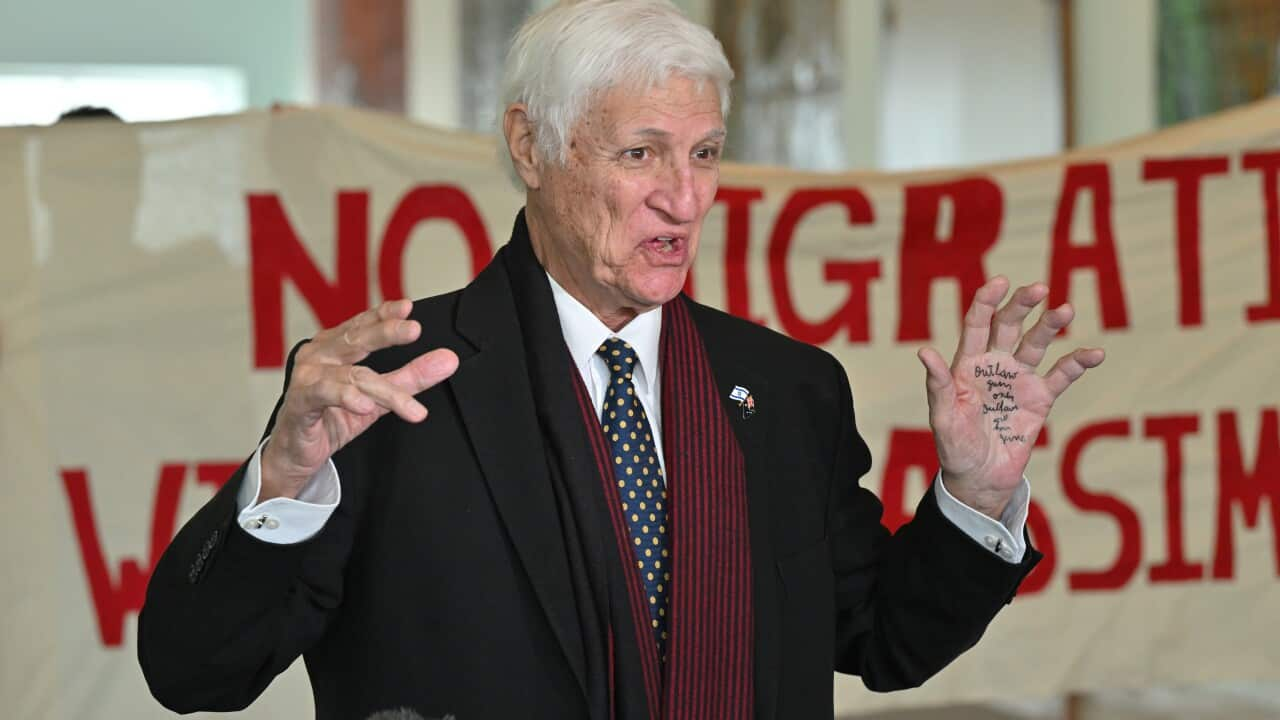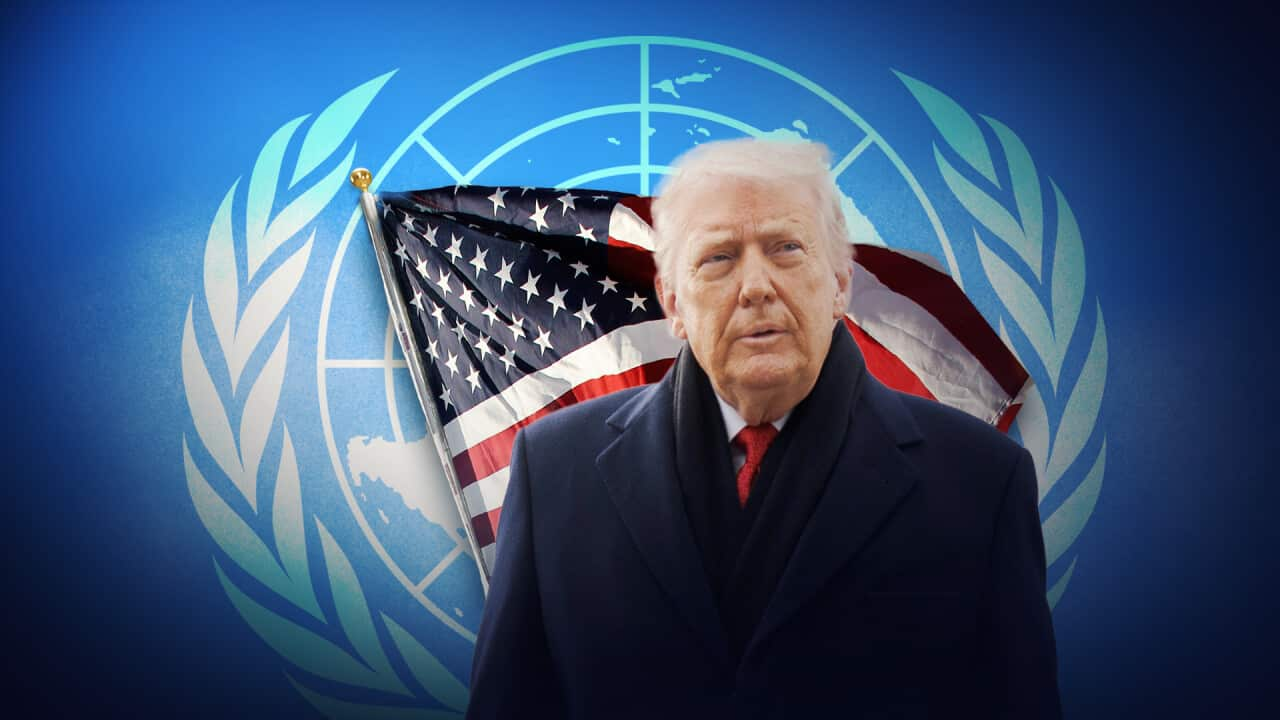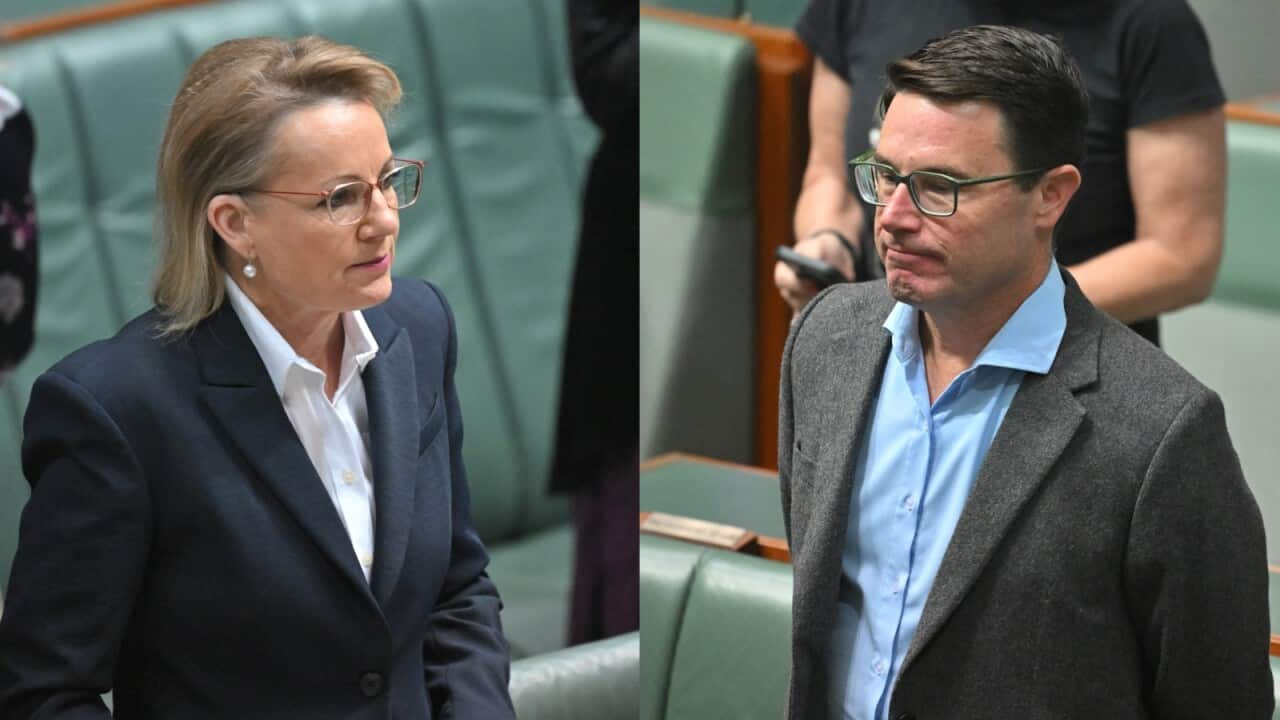Listen to Australian and world news, and follow trending topics with SBS News Podcasts.
TRANSCRIPT
With just over 100 days before the US presidential election Joe Biden's exit has disrupted the vote's predicted course. Voter engagement appears key to a winning strategy --- non-compulsory system of voting.
The 2020 presidential election had the highest turnout since 1900, yet one-third of eligible voters didn't vote.
In the battleground state of Wisconsin, Democrat Kamala Harris held the first rally of her presidential campaign.
"What kind of country do we want to live in? A country. And to your point, do we want to live in a country of freedom, compassion and rule of law, or a country of chaos, fear and hate?"
In 2020, she made history as the first Black, Asian, and female vice president.
In pursuing the role of president, she would be seeking to bring about at least two firsts in the White House, including as the first woman to serve as US president.
Speaking to party supporters, she framed the election contest as a choice between herself - a former prosecutor - and convicted felon, Donald Trump.
"Before I was elected vice president, before I was elected United States Senator, I was elected attorney general of the state of California, and I was a courtroom prosecutor before then. And in those roles, I took on perpetrators of all kinds. Predators who abused women, fraudsters who ripped off consumers, cheaters who broke the rules for their own gain. So hear me when I say, I know Donald Trump's type."
She also outlined the central planks of her campaign.
"We who believe that every person in our nation should have the freedom to live safe from the terror of gun violence. We'll finally pass red flag laws, universal background checks, and an assault weapons ban. And we will believe in reproductive freedom. We'll stop Donald Trump's extreme abortion bans because we trust women to make decisions about their own body."
After securing enough delegates to win the nomination, Kamala Harris was quickly dubbed the presumptive Democratic presidential nominee.
She is expected to be formally endorsed at next month's Democratic National Convention.
But there could be legal hurdles to overcome, with Republicans threatening to take Democrats to court for replacing their nominee this late in the process.
Legal analysts say such a move, if attempted, would not get very far, as the party would still be following the right procedure in using the upcoming convention to name a candidate who then gets ballot placement in every state.
Born in Oakland, California, to immigrant parents - an Indian mother and Jamaican father - Kamala Harris appeals to multiple voting blocs.
Just hours after Mr Biden's withdrawal from the presidential race, thousands of Black women raised over 2.3 million Australian dollars for Kamala Harris in under three hours.
The Win With Black Women group spearheaded the effort, using a Zoom call to generate the fundraising.
Ms Harris's membership in Alpha Kappa Alpha - the first Black Greek-letter sorority - at Howard University in Washington, DC, is also sparking viral engagement online.
Charlene Collins is the chapter president of Alpha Kappa Alpha Philadelphia.
She told 6abc Philadelphia there is a lot of excitement over what Kamala Harris could achieve.
"This is an amazing moment, not just for women of colour. I think for women, period. Women have done a lot for this country. We continue to contribute. And yet still in the great United States, we have yet to see someone (who is a woman of colour) sit in that seat."
And while Joe Biden struggled to connect with young voters, the narrative has already shifted with Kamala Harris.
Mr Biden is the oldest US president to take office, stepping into the role at the age of 78 [and announcing his re-election bid at 80.
Ms Harris at 59 has already started to court the youth vote, with her campaign team conducting outreach to several youth grassroots organisations.
British pop singer Charlie XCX offered her endorsement, using the term "brat" to signal her support.
The singer has defined the term to mean "that girl who is a little messy - and likes to party - and maybe says some dumb things sometimes".
Picking up on the term's viral popularity, the Kamala campaign has embraced the term, using the hashtag bratsummer on social media.
And a line from a 2023 speech by Kamala Harris, once derided by critics, is now being embraced by Gen Z as a symbol of their support through the use of a coconut emoji.
According to TikTok, users on their platform have included audio from what's now being called the "coconut tree" speech in at least 3,000 videos.
"Everything is in context. My mother used to... She would give us a hard time sometimes and she would say to us, 'I don't know what's wrong with you young people. You think you just fell out of a coconut tree?' (Laughs). You exist in the context of all in which you live and what came before you."
At this election, 40 million under-30s will be eligible to *vote - that's equal to 24 per cent of all registered voters.
About 45 per cent of this group are from culturally diverse backgrounds, including: 8.8 million Latinos, 5.7 million Black youth, 1.7 million Asian Americans, and 1.8 million multi-racial young people.
Professor Barbara Perry is from the University of Virginia's Miller Center for Presidential Studies.
She says even with the support base behind Kamala Harris, she is likely to still encounter challenges in trying to win over voters in an increasingly polarised environment.
"There will be challenges, in this country, for gender, I think more so for gender now than even colour, because that barrier was broken by Barack Obama. But he obviously is a male. And I think we saw some of the misogyny, or just bias against women, that that occurred with Hillary Clinton in 2016. I'm hoping that we can get past that just for the race itself, no matter if she's elected. But, I know that we have in this country, certainly only have had male presidents and going all the way back to our first president, the father of our country, George Washington, he was called that even when he was extant. And so there is this male model and paternal model of presidents of the United States. And somehow I hope the United States can get over that so that we can expand by half, the number of people who would be eligible and winnable candidates, for the presidency of the United States. It's too important an office to exclude half of the American population."
